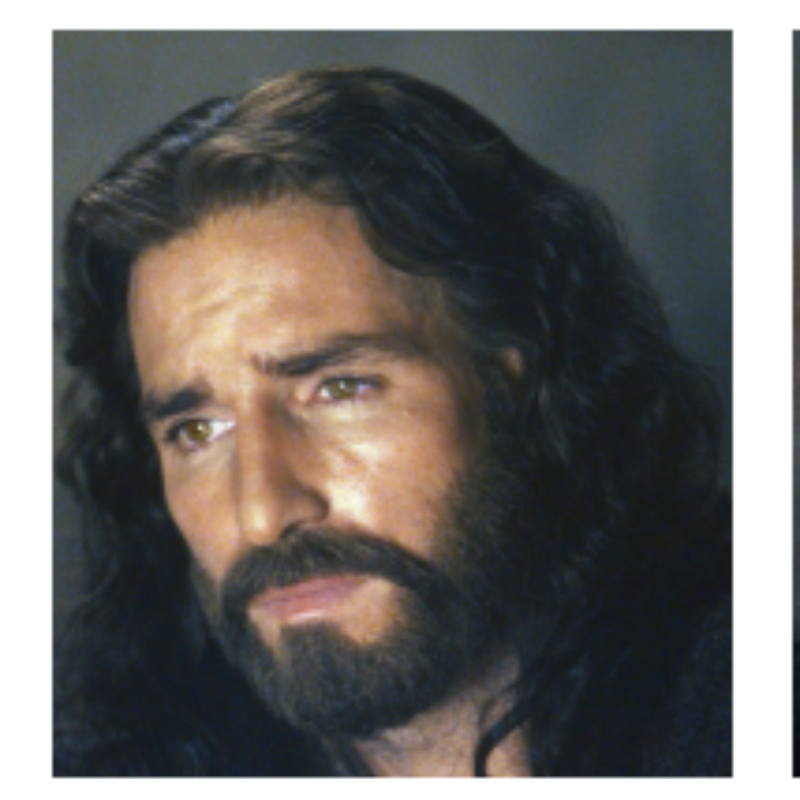Article originally published through Doorway Publishing

Even though the first season is officially over, I still can’t look away! Like running to a horrific car accident that happened in front of my house, there is something spellbinding about watching the battle surrounding the Rings of Power. I am fascinated by all of the controversy swirling around the debate concerning Amazon’s billion-dollar film project. I can’t get enough of the articles written trashing it and then seeing the response of others who are trying to defend it. Don’t get me wrong, it is not because I like the Rings of Power, hardly. It is because the war that is raging between Amazon and the loyal Tolkien fans illustrates an even larger cultural battle that is happening all around us. Rings of Power may only be a story, but it brings out in the open so many philosophical questions of meaning that directly affect the larger moral universe we are all living in.
Questions like: Does Story matter? And if it does, who gets to tell it? What is the best way to depict life? When it comes to creating art, how do you recognize quality and what is trash? Do the fans have a right to criticize those who they think are telling the story wrong? These are the sorts of questions I would like to consider as we all try to figure out our place in this world.
I believe the reinterpretation of the Lord of the Rings narrative by the show-runners, J. D. Payne and Patrick McKay, is a direct reflection of how our current ideological post-modern worldview has changed the average man’s understanding of the world we live in. The reworking of the Rings of Power storyline follows the same pattern modern academia, legacy media, and pop culture have done with God and his Judeo-Christian worldview. Like J. R. R. Tolkien, God is also a storyteller. I believe he is the author of our existence, which means, as some people like to quip, “History is his-story.” So, like a loyal Tolkien fan who does not like the storyline of Lord of the Rings to be warped and perverted, I too feel righteous anger when people mess with God and his design for life.
I have three main topics I want to discuss concerning the Rings of Power, and then I want to apply those insights to the world of faith and salvation. My hope is that those people who are convinced that we need to defend the integrity of their favorite popular fictional world (Lord of the Rings, Star Wars, Star Trek, Game of Thrones), will also be willing to apply the same logic and reason when it comes to defending eternal realities. If story matters, shouldn’t a correct understanding of reality matter as well? I have divided up the topics and the relevant questions into three main groups and for each group, I will address the main question that touches on both fiction and eternity. Like a parable, I want to use a story to tell a story.
(1) Authority: Respecting the Rights of the Author
Twelve years, and then add five more. This is how long it took J. R. R. Tolkien to write and publish his Lord of the Rings trilogy. 150 million copies of it have sold. His writings have touched countless lives, and I am one of them. I have read the series over five times, I have shared them with my sons, and I have used the stories as illustrations in my sermons. His writing is both beautiful, insightful, complex, breathtaking, long, and full of noble values and honor. It is truly a sweeping drama of epic proportions. Tolkien poured his heart and soul into those books. And people love him for it.
So why shouldn’t people be jealous of the story they have come to know and love? And why shouldn’t they become a bit defensive when it is treated as merely a springboard for those who come after just so they can tell their own story while at the same time using Tolkien’s popularity to gain an audience they didn’t personally cultivate? Even though the Lord of the Rings is merely a story, it is still Tolkien’s story, his intellectual property, and respecting the work is honoring the man.
But enter post-modern theory which believes the story is only as valuable as the person reading it. It forgets the author and exalts the reader. We now want to, in our modern mindset, as one actor in the Rings of Power has said, “see ourselves in the story.” We want it to “reflect the world of today.” But isn’t that the exact opposite reason Tolkien wrote the story in the first place? He wanted to tell of a world that is different from ours. By creating Middle Earth he was able to create a narrative that brought out values and lessons that were lacking in our world. He wanted to tell a grand story, in his way, on his terms. He wanted his reader to escape their world and enter his. And by doing so, he believed that we would be better for it.
But today’s readers want to be the center, they want to be included.
They want to rewrite the story in their own image, with their own values and lessons, and so in their hubris, they do. And when they do, Tolkien is ignored and forgotten like a guest who is left outside in the cold.
Ten thousand years, and then add some eternal deliberations. The phrase that is found in the first book of the Bible, “Let us make man in our image”, describes, as Pascal Bazzell believes and Justin Ariel Bailey writes about, God the Father, Son, and Holy Spirit in the “act of exploring possibilities as they unleashed the potentialities of creation for its own good to the glory of God.” The Trinitarian God took his time writing the story of history that was to be played out on the stage of earth. He poured his heart and soul into this story, and as Galatians 4:4-5 says, “when the fullness of time had come, God sent forth his Son, born of woman, born under the law, to redeem those who were under the law, so that we might receive adoption as sons.” As the author of this world, he wanted it to be perfect, so we could be perfected.
So why shouldn’t people be jealous of the story they have come to know and love? And why shouldn’t they become a bit defensive when the Bible is treated as merely a springboard for those who come after Jesus and the apostles (Hebrews 2:2-4), to tell their own story? And the difference between the Lord of the Rings and the biblical narrative is that God’s world is not merely a fictional story, it is the Story of the God who is, it is his intellectual property, and respecting the work is worshipping God the Creator.
But enter post-modern theory which believes the Bible is only as valuable as the person reading it. It forgets God and exalts the reader as a god. We now want to do, as Judges 21:25 says, “where everyone did as he saw fit.” We want God’s word to “reflect the world of today.” But isn’t that the exact opposite reason God wrote the story? He wanted to fix the world that sin had corrupted — he wanted us to change and not just go along with everyone else who is “gratifying the cravings of our sinful nature and following its desires and thoughts” (Ephesians 2:3). He wants people who were once lost to become holy and blameless. By sending his Son he was able to break through into our dark world that is ruled by sin, so his reader could escape their world and enter his. And by doing so we get to become his children.
But today’s readers, want to be the center, they want to be included. They want to rewrite the story, and so they do. And in their rewriting, they have lost the purpose of the story. They like life the way it is, sin and all. And God is too pure to look upon iniquity. We all lose when we rewrite the story to have it our way.
(2) Worldview: The Rules, the Lore, and Characters
Tolkien’s worldview had rules. The rules that Tolkien devised took years to develop, they have consistency because they were rooted in real history with values that Tolkien chose to emphasize. He wanted to create a world of nobility, honor, valor, chivalry, goodness over evil, humility, and hope over darkness. Tolkien’s characters were formed by following those rules. But for the modern reader, those rules are no longer respected in our haze of human hubris. So the writers of Rings of Power had to twist the rules to reflect our world. But when you twist rules you lose both the story and the actual characters in the story. It is as simple as that. When it comes to the Rings of Power, it doesn’t work because betraying Tolkien’s original values contradicts his world.
And when it comes to characters, the writers of the Rings of Power may use the names of Tolkien’s characters like Galadriel, Sauron, Elrond, and the list goes on, but they do not possess the same character qualities. So in fact, they are not the same characters, which renders the names meaningless. A character must behave as originally written or it is in danger of becoming a different person altogether. We all know that.
When it comes to Rings of Power, there has been more backlash and articles written that focus on how offensive the new take on Galadriel is. Once a beloved elf, she has become an “insufferable bore.” People who once loved her, now hate her. So what happened to her character? The writers changed her to fit our modern sensibilities. They wanted her to be a butt-kicking feminist warrior. They wanted her to be made in a new post-modern image. And trying to make this new character fit in Tolkien’s world, is like fitting a man’s 11-sized foot in a ladies-size 8 high-heeled pump. It simply doesn’t work. One commentator writes about this:
“On one hand, in Tolkien’s book you have this beautiful ethereal being that is brimming with kindness and fairness, yet with enough power and authority to make many grown men turn in shame and feeling unworthy, yet her kind words reassure them. She’s also powerful enough that she really needs no weapons, but her magic is enough to repel dark forces long enough to save her kin and others, basically exorcising evil.
Then you have this ‘new’ Galadriel in Rings of Power. This spoiled, arrogant, scowling narcissist demands revenge and will beat down anyone in her way with either threat of violence or emotional manipulation. And even openly admits that she gets a rush from killing.
One is a powerful yet wholesome angelic being, the other is a bloodthirsty psychopath who acts like a spoiled teenager.
And they’re meant to be the same character. It’s so tragic.”
In the same way, God’s worldview has rules. The rules that God developed are etched into reality itself because reality reflects his character. His rules have consistency and immutability because they are rooted in him. God’s rules are also good. Which means they are the best way to live. As Robert Goudzwaard explains:
“The purpose of norms is to bring us to life in its fullness by pointing us to paths which safely lead us there. Norms are not straight jackets which squeeze the life out of us…the created world is attuned to those norms.” And Justin Bailey agrees, “When norms are broken, they break us; when followed, they move us toward greater flourishing.” The norms God has for us are good. And those norms and values are fulfilled in the person of Jesus Christ the Son. He is “the radiance of God’s glory and the exact representation of his being.” But people of today have twisted his character to reflect the values of our world. People may use the names of Jesus, but he does not possess the same characteristics as scripture reveals. So in fact, the Jesus many people worship is not the Jesus that actually lives, which renders his name meaningless in many churches. Paul is clear on this in 2 Corinthians 11:2-4 says:
“For I feel a divine jealousy for you, since I betrothed you to one husband, to present you as a pure virgin to Christ. But I am afraid that as the serpent deceived Eve by his cunning, your thoughts will be led astray from a sincere and pure devotion to Christ. For if someone comes and proclaims another Jesus than the one we proclaimed, or if you receive a different spirit from the one you received, or if you accept a different gospel from the one you accepted, you put up with it readily enough.”
People say they want Jesus, but they want him to be made in a new post-modern image: “He is love, and he loves you just as you are.” Forget the rest of the story about how Jesus died for sin so “we don’t have to live in it any longer.” Jesus is not the Jesus that God the Father, as an author, would recognize as his Son. So trying to make this new Jesus fit into God’s world simply doesn’t work.
(3) Promotion: Who Gets to Tell the Story
This is the biggest question of all — who has the legitimate right to tell the story? Is it those with the biggest bank accounts, or those who want to respect the author’s intent? It seems in our post-modern culture the one with the most money wins the right to tell the story. They (Amazon) are also really good at shouting down people who disagree with them because they can buy the press to do all the shouting for them. Sadly, people listen to the loudest voice as if it is the most honest and true. But this Rings of Power debacle has taken a turn, the lovers of the original story are fighting back. They are joining together to stand-up strong for the integrity of the story.
The small man in love is proving himself to be stronger than the strong man of greed.
So too with the story of Jesus. It also is a story built on love. Large cooperations and popular movements will forever try to hijack Jesus to make a profit off of sinful habits. Mega churches will tone down the message of the cross to keep them from giving up. But the single person in love with the true Son of God can’t stop telling it in all its wonderful detail. “I once was blind, now I see.” That is the sort of story that convinces me. That is the sort of story that cannot be stopped.
When I was 10 years old, my dad wanted to teach me how to draw. So he bought me an animated book of the Lord of the Rings. The first creature I learned how to draw was Gollum, and I was hooked on the story ever since. When I became a young pastor at a church, we just began a building project and the project that we began felt as heavy as carrying the One Ring to Mordor. I told the leadership “I will carry the ring”, I just need a fellowship behind me. When my kids faced difficulties, I told them that “so do all who live to see such times.” The true story that you first fell in love with will continue to ring true. The false will fade away.
My passion is simply for the Lord of the Rings as Tolkien intended. I want people to know the true story because it can inspire, encourage, enrich and enthrall. In the same way, my passion for Jesus is simple: “I was blind, and now I see.” And you can too.
That is why I am so obsessed with getting the story right.



